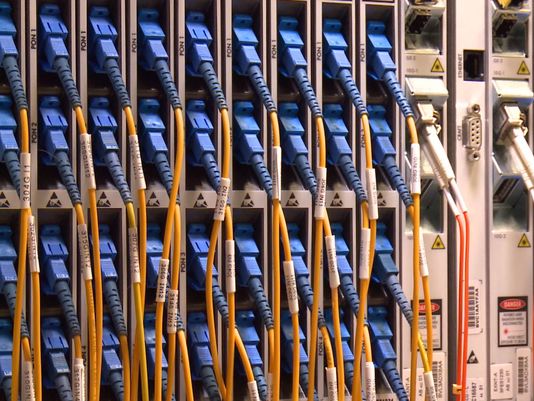
Cities frustrated with high prices and slow internet speed fight to build their own blazing fast fiber-optic networks.
This very detailed article is one of many examples that demonstrates competition benefits the consumers in price, choice, and customer service. No one argues that broadband services improve the lives and vitalities of those that it touches or that the incumbents are slow to improve and expand their services without competition. What is at question is whether a government owned service provider has any unfair advantages over private service providers? Does FiberNET benefit from their utility parent owning poles and right-of-ways? Do these advantages prevent other players from possibly competing against FiberNET? Should FiberNET’s facilities be open to all potential carriers?
There is no doubt that Morristown FiberNET is well run and delivering a quality product. They have over a 100 year history to build providing other utilities. I believe that the MUS should open up their fiber network to other potential service providers including the incumbents to spur even more competition that will benefit the city and its residents.
(WBIR) Economists say high speed internet is no longer just a luxury. Blazing speed is now a necessity for good schools and big business. Some cities in East Tennessee are taking the internet into their own hands because they say the private phone and cable companies are not getting the job done at a reasonable price.
Morristown and Chattanooga are now part of a national debate over cities that say the phone and cable companies charge too much for internet connections that are too slow. The cities deem the infrastructure so vital that they have turned high speed internet into a public utility.
“You had railroads, you had interstates, and this is the new infrastructure cities need to have,” said Jody Wigington, CEO of Morristown Utility Systems (MUS). “To us, this really is as essential to economic development as having electricity or water.”
CABLE COMPLACENCY
Wigington said MUS created its FiberNET service around 10 years ago when citizens and the city council were fed up with the sole local cable provider constantly increasing rates on television.
“There was no high-speed internet. Businesses were complaining. All we saw were rate increases and no improvements of services. We had been waiting 10 to 15 years for them to improve services, and nothing happened,” said Wigington. “We installed about 310 miles of fiber-optic cable on our utility network. We use that fiber to read meters and for our smart grid for electric service, then our telecom division leases space on that fiber to provide television, internet, and telephone service.”







